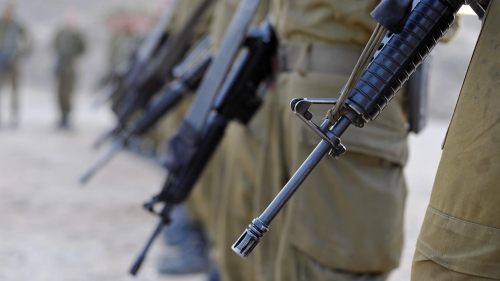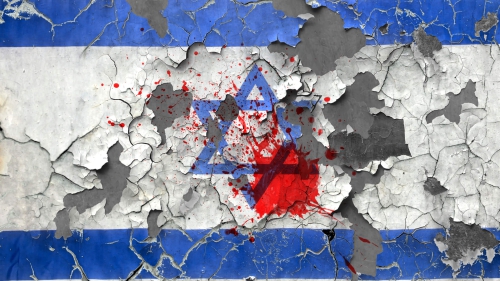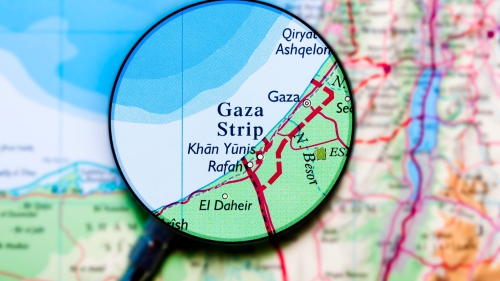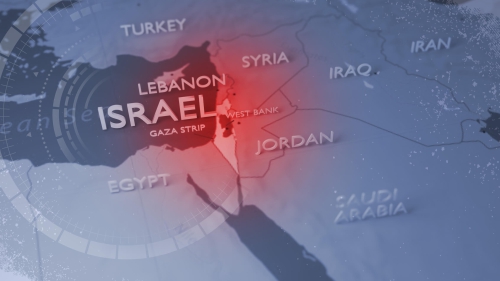Book Review: Scattered Like Seeds (A Novel)
Article first appeared in the Oct/Nov 1999 issue of Washington Report on Middle East Affairs
Let's go back to Athens in the Sixth and Fifth centuries B.C. The Greeks were coping with the Persian invasions, winning such battles as Marathon and Salamis, but just barely, and Aeschylus, perhaps the greatest of the classical Greek dramatists, was writing his tragedies.
The stage in Aeschylus' days had one actor at a time, while a chorus of up to 12 persons conducted a running commentary on what the actor was saying, doing and thinking about whatever fate the gods had decreed. The role of the chorus was to help the audience understand what the playwright had in mind, and certainly not to mislead or confuse the audience by undercutting the actor's words, or making them inaudible.
Let's come back to the 20th century, specifically to Scattered Like Seeds, a novel written mainly in play-dialogue, by Palestinian-American lawyer/engineer/professor (at the University of Syracuse) Shaw J. Dallal. His theme is the tragedy of Palestine, the culpability of the United States in the continuing misery of the Palestinian people and the personal tensions and agonies suffered by Palestinian Americans torn between devotion to the land of their birth and to their adopted country. (In a short introduction to the novel, Palestinian-American commentator Dr. Muhammad Hallaj comments on the irony that the collective tragedy of dispersing and scattering of Palestinian society has given unprecedented opportunity for individual Palestinians to prosper, become educated and realize their potential in the struggle for Palestinian independence.)
In dramatic terms, the audience for Scattered Like Seeds' is of course the Palestinians, but much more than that it is the American people who (mostly) unknowingly finance and politically support Israel's brutalization of Palestine and the suffering Palestinian people. Shaw Dallal is the one actor on today's real-life stage, using the many voices of his characters in dialogues in the United States, Lebanon, Syria, Kuwait, Jordan and Egypt. Unfortunately his chorus is the grossly pro-Israel American media, and because of its ideological bias it is misleading the American audience by deliberately misreporting the actor's situation and making such a din that the audience cannot hear the actor's words or understand what he is trying to do.
Allam, the protagonist, is the son of an Arab hero of the 1936-1939 "Great Strike," which in reality was a doomed revolt by the Palestinians against the British campaign to turn their country over to Jewish immigrants. As the son of one of the most famous of the 14,000 Palestinians killed by the British, Allam, a physicist and lawyer, is highly regarded wherever he goes in the Middle East. He stops off at a refugee camp in Beirut on his way to take up his position as legal counsel of the Organization of Arab Oil Exporting Countries (OAPEC).
Young refugees in Beirut, reflecting their hopelessness, in the reviewer's opinion, urge Allam to help build a nuclear bomb to get even with the Israelis. He turns them down because, as he tells them, he "doesn't believe in violence." In reality, again in the reviewer's opinion, his reluctance to participate in such a destructive "solution" to the problem is because of his ties to an America that, despite its miserably misguided pro-Israel policies, has given thousands of individuals, like himself, the opportunity to realize their genius.
Written in dialogue like a play, Allam's American wife, his children, Palestinians, other Arabs, and everybody talk about the myriad aspects of Palestine, of American Middle East policy, of Zionist/Israeli machinations and the seeming fecklessness of Arab politics. Perhaps short of some of the practiced technique of an experienced novelist, Dallal's dialogue system nevertheless puts a sympathetic human face on the dry facts of the Palestinian Nakba--the catastrophe of dispossession.
Alam's American wife having died before he left for Kuwait, Allam meets and falls for a Palestinian woman who is a fellow employee at OAPEC. But it seems they may not be able to be married because she is not willing to reside in the United States and he, by the time Scattered ends, has not resolved his doubts on whether to stay in the Middle East or return to the United States.
The detailed coverage in Scattered Like Seeds of the OAPEC decision to launch the Arab oil boycott against the United States in the 1973 Arab-Israel war makes very interesting reading. However, part of the satisfaction of seeing the Arab states work together for a change is vitiated by a mean-spirited charge from an Allam enemy that he technically cannot retain his position as a legal counsel to OAPEC because he does not hold citizenship of one of the member countries.
Two member countries offer him citizenship, but Allam turns them down because of his pull toward the United States, revealing the constant tension that he, a Palestinian-American Everyman, feels toward an America that he has adopted as his country yet, which through ignorance, sloth and manipulation, continues to betray Palestine.
This is a book well worth the reader's time, both for enjoyment and information. It contains a good bit of drama and real tension. It puts the great Palestinian people in the favorable light they so deserve. And it makes Americans, like the reviewer, who believe the continuing brutalization of Palestine is the foremost moral issue in the world today--because we are at the root of it--resolve to work harder than ever to defeat the Zionists' "cult of disinformation" about Palestine.
Andrew I. Killgore is the publisher of the Washington Report on Middle East Affairs

















